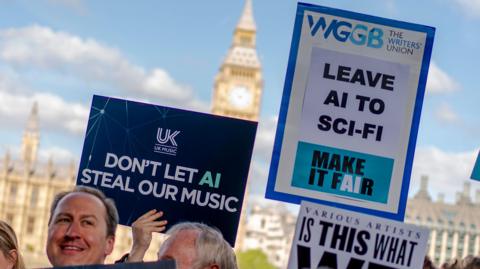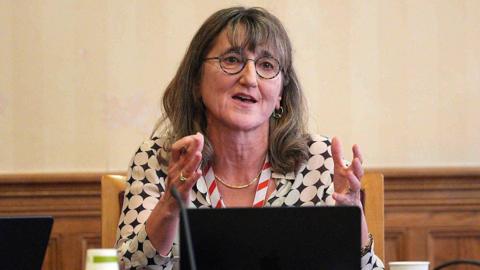The argument is over how best to balance the demands of two huge industries: the tech and creative sectors.
More specifically, it's about the fairest way to allow AI developers access to creative content in order to make better AI tools - without undermining the livelihoods of the people who make that content in the first place.
What's sparked it is the uninspiringly-titled Data (Use and Access) Bill.
This proposed legislation was broadly expected to finish its long journey through parliament this week and sail off into the law books.
Instead, it is currently stuck in limbo, ping-ponging between the House of Lords and the House of Commons.
A government consultation proposes AI developers should have access to all content unless its individual owners choose to opt out.
But nearly 300 members of the House of Lords disagree with the bill in its current form.
They think AI firms should be forced to disclose which copyrighted material they use to train their tools, with a view to licensing it.
Sir Nick Clegg, former president of global affairs at Meta, is among those broadly supportive of the bill, arguing that asking permission from all copyright holders would "kill the AI industry in this country".
Those against include Baroness Beeban Kidron, a crossbench peer and former film director, best known for making films such as Bridget Jones: The Edge of Reason.
She says ministers would be "knowingly throwing UK designers, artists, authors, musicians, media and nascent AI companies under the bus" if they don't move to protect their output from what she describes as "state sanctioned theft" from a UK industry worth £124bn.
She's asking for an amendment to the bill which includes Technology Secretary Peter Kyle giving a report to the House of Commons about the impact of the new law on the creative industries, three months after it comes into force, if it doesn't change.

